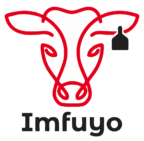In the field of agriculture, small-scale livestock farming plays a pivotal role in supplying local communities with essential animal products being sources of proteins in the human diet. However, these farmers often face a myriad of challenges that hinder their productivity and growth. From limited resources to technological barriers, let’s dive into the common challenges that Kenyan small-scale livestock farmers encounter and explore potential solutions.

1. Limited Access to Resources
One of the primary challenges faced by small-scale livestock farmers is limited access to critical resources such as land, water, and finance. This scarcity can lead to restricted herd sizes and inadequate infrastructure, ultimately impacting productivity.
Miriam, a determined small-scale livestock farmer in Ngong’ Kajiado county, recently shared her story with one of our veterinary doctors, Dr Carol, when she called her for a herd health management visit. With a touch of frustration and hope in her voice, Mirriam shared her story.
“You see,” she began, “I have two beautiful cows, Daisy and Betsy, they’ve been my main source of income for over one year now. But there’s a challenge, Daktari. The land I have is limited, and I’ve always dreamt of expanding my milk production but the constraints of space hold me back. I’ve researched ways to maximize yield within my limited area, but it’s not easy. I long for a solution that can help me overcome this hurdle and fulfill my dreams of contributing even more to the livelihoods of those around me through quality milk.”
Government and Agri Fintech should strive to customized financial options for small scale farmer to enhance infrastructure, livestock and management practices
2. Lack of Technical Knowledge
Many small-scale farmers lack access to modern agricultural techniques and knowledge. Staying updated on best practices for livestock health, nutrition, and breeding can be a significant hurdle, resulting in suboptimal productivity

Solutions to these challenges can involve;
1. Capacity Building: Providing training and workshops on livestock management can empower farmers with the technical knowledge they need to enhance productivity
2. Extension Services: Establishing extension services or partnerships with agricultural experts can ensure that farmers receive timely advice and solutions for disease management and biosecurity
3. Disease Management and Biosecurity
Disease outbreaks can devastate livestock populations and severely impact small scale farmers’ livelihoods. Implementing effective biosecurity measures requires knowledge, resources, and proper training, which may be hard to come by for small-scale farmers.
In the intricate tapestry of small-scale farming stories, Mr. Mugo, one of our farmers’, experience echoes a common struggle. As a passionate dairy goat farmer, he recently faced a heart-wrenching loss when one of his goats fell victim to tetanus. The lack of knowledge on disease control and prevention had devastating consequences. Mr. Mugo, found solace and guidance from our doctor. “Daktari,” he stated, “I’m haunted by the loss of my goat to tetanus. Is there a way I can learn more about disease prevention and control?” With compassion, our vet responded, “Absolutely, Mr. Mugo. Our company, Imfuyo, offers a knowledge hub filled with resources on livestock health, disease management, and preventive measures. By accessing our services, you can equip yourself with the knowledge you need to safeguard your precious goats and ensure their well-being.” A glimmer of hope returned to Mr. Mugo’s eyes as he realized that through Imfuyo, he could turn tragedy into an opportunity to learn and protect his Livestock
Establishing extension services or partnerships with Veterinary experts can ensure that farmers receive timely advice and solutions for disease management and biosecurity.
4. Market Access and Distribution
Connecting small-scale livestock farmers to markets can be a major hurdle. Limited transportation infrastructure and insufficient market linkages can result in products not reaching consumers efficiently, leading to financial losses.
Mr. Kamau, a diligent dairy goat farmer, faced a challenging crossroad. With a herd of over 20 Alpine goats, he found himself contemplating the difficult decision of disposing of his beloved goats due to a trifecta of issues. The lack of a reliable market, untrustworthy buyers for his milk products, and the labor and cost-intensive nature of goat production left him disheartened. “It’s disheartening, Daktari,” Mr. Kamau confided, “I’ve put so much effort into nurturing my goats, but finding a stable market and trustworthy buyers is an ongoing struggle. The costs and time involved in their care have become overwhelming.”
Sympathizing with his plight, our vet immediately thought of a solution that Imfuyo offers to farmers with the same challenges.
“Mr. Kamau, our farmer platform specializes in connecting farmers like you with reliable markets, ensuring fair prices for your products. Through our system, you can establish a network of trusted buyers and gain access to valuable resources to streamline your production process.

We’re here to help alleviate the challenges you’re facing and make your dairy goat farming venture more sustainable and profitable.”
There are many farmers out here who share the same challenges similar to Mr. Kamau. Bridging this gap between buyers and product sellers while avoiding brokers really improves farm productivity.
Encouraging farmers to form cooperatives can give them more bargaining power in negotiating prices and accessing larger markets.
